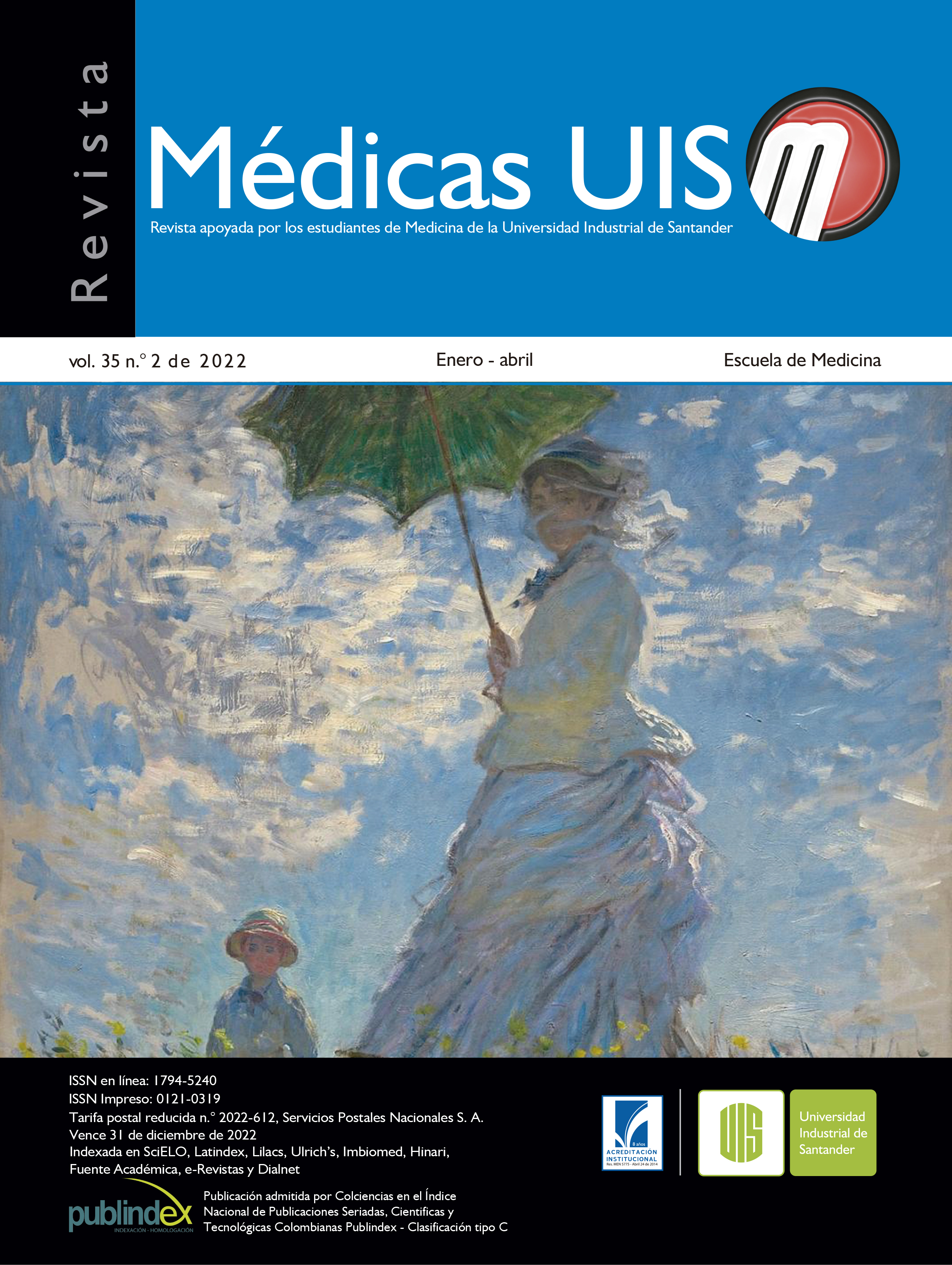Abstract
Opsoclonus myoclonus syndrome is a rare neurological entity affecting preschool children. Clinically it is characterized by a classic triad of
opsoclonus, myoclonus, and acute ataxia, with a progressive or even incomplete course. Its etiology can be paraneoplastic, in most cases
in association with neuroblastomas, as well as postinfectious or parainfectious, autoimmune or idiopathic. The goal of treatment is immunomodulation with first-line therapy with intravenous steroids, although it can be associated with relapses and long-term neurological
and behavioral sequelae. The opsoclonus myoclonus syndrome represents a diagnostic challenge in patients with acute ataxia given the
variety of clinical presentations, therefore it is important to have a high diagnostic suspicion to ensure timely treatment and aoid future
sequelae.
References
Desai J, Mitchell WG. Acute cerebellar ataxia, acute cerebellitis, and opsoclonus-myoclonus syndrome. J Child Neurol. 2012;27(11):1482-8.
Hasegawa S, Matsushige T, Kajimoto M, Inoue H, Momonaka H, Oka M, et al. A nationwide survey of opsoclonus-myoclonus syndrome in Japanese children. Brain Dev. 2015;37(7):656-60.
Klaas JP, Ahlskog JE, Pittock SJ, Matsumoto JY, Aksamit AJ, Bartleson JD, et al. Adult-onset opsoclonus-myoclonus syndrome. Arch Neurol. 2012;69(12):1598-607.
Swaiman K, Ashwal S, Ferriero D, Schor N, Finkel R, Gropman A, Pearl P, Shevell M. Swaiman Pediatric Neurology. 6th Edition. Elsevier; 2017.
Armangué T, Sabater L, Torres-Vega E, Martínez-Hernández E, Ariño H, Petit-Pedrol M, et al. Clinical and Immunological Features of Opsoclonus-Myoclonus Syndrome in the Era of Neuronal Cell Surface Antibodies. JAMA Neurol. 2016;73(4):417-24.
Pranzatelli MR, Tate ED. Trends and tenets in relapsing and progressive opsoclonus-myoclonus syndrome. Brain Dev. 2016;38(5):439- 48.
Hero B, Schleiermacher G. Update on Pediatric Opsoclonus Myoclonus Syndrome. Neuropediatrics. 2013;44(6):324–329.
Matthay KK, Blaes F, Hero B, Plantaz D, De Alarcon P, Mitchell WG, et al. Opsoclonus myoclonus syndrome in neuroblastoma a report from a workshop on the dancing eyes syndrome at the advances in neuroblastoma meeting in Genoa, Italy, 2004. Cancer Lett. 2005;228(1- 2):275-82.
Blaes F, Dharmalingam B. Childhood opsoclonus-myoclonus syndrome: diagnosis and treatment. Expert Rev Neurother. 2016;16(6):641-8.
Rossor T, Yeh EA, Khakoo Y, Angelini P, Hemingway C, Irani SR, et al. Diagnosis and Management of Opsoclonus-Myoclonus-Ataxia Syndrome in Children: An International Perspective. Neurol Neuroimmunol Neuroinflammation. 2022;9(3):1-8.
Mitchell WG, Davalos-Gonzalez Y, Brumm VL, Aller SK, Burger E, Turkel SB, et al. Opsoclonus ataxia caused by childhood neuroblastoma: developmental and neurologic sequelae. Pediatrics. 2002;109(1):86–98.
Cantarín-Extremera V, Jiménez-Legido M, Aguilera-Albesa S, Hedrera-Fernández A, Arrabal-Fernández L, Gorría-Redondo N, et al. Síndrome opsoclono-mioclono: características clínicas, aspectos terapéuticos y factores pronósticos en una cohorte pediátrica española. Soc Española Neurol. 2020;1(1):1–11.
Sandes LF, Martins JC, Soares de Sá MM, Ribeiro-Torres B, Barbosa-Silva MF, Soares Barbosa AV. Síndrome de Kinsbourne: série de casos pediátricos durante doze anos em Belo Horizonte, Brasil. Rev Med Minas Gerais. 2021;31(Supl 10):S21-S25.
Martínez A, Laguna D, Hernández S. Síndrome de Kinsbourne: caso clínico pediátrico. Acta Pediatr Mex. 2021;42(1):21-6.
Rodríguez-Rangel DA, Gelvez-Pinzón JD. Síndrome opsoclonus mioclonus paraneoplásico en pediatría: reporte de caso y revisión de la literatura. Acta Neurol Colomb. 2015;31(2):209-13.
Paredes-Ebratt AM, Espinosa-García ET. Síndrome de Kinsbourne: reporte de un caso. Iatreia. 2017;30(1):81-5.
Zúñiga-Amaya BD, Restrepo-Jiménez JP, Rojas-Cerón CA. Síndrome opsoclonus-mioclonus-ataxia asociado con un teratoma ovárico maduro en un paciente pediátrico. CES Med. 2019;33(3):208-14.
Goraya JS. Acute movement disorders in children: experience from a developing country. J Child Neurol. 2015;30(4):406-11.
Meena JP, Seth R, Chakrabarty B, Gulati S, Agrawala S, Naranje P. Neuroblastoma presenting as opsoclonus-myoclonus: A series of six cases and review of literature. J Pediatr Neurosci 2016;11(4):373-7
Russo C, Cohn SL, Petruzzi MJ, De Alarcon PA. Long-term neurologic outcome in children with opsoclonus-myoclonus associated with neuroblastoma: a report from the Pediatric Oncology Group. Med Pediatr Oncol. 1997;28(4):284–8
Auconi M, Papetti L, Ruscitto C, Ferilli MAN, Ursitti F, Sforza G, Vigevano F, Valeriani M. Opsoclonus-Myoclonus Syndrome in Children and Adolescents: A Therapeutic Challenge. Children. 2021;8(11):965.
Pang K, De Sousa C, Lang B, Pike MG. A prospective study of the presentation and management of dancing eye syndrome/opsoclonus-myoclonus syndrome in the United Kingdom. Eur J Paediatr Neurol. 2010;14(2):156–161.
Pranzatelli MR, Tate ED, Travelstead AL, Barbosa J, Bergamini RA, Civitello L, et al. Rituximab (anti-CD20) adjunctive therapy for opsoclonus-myoclonus syndrome. J Pediatr Hematology/ Oncology. 2006;28(9):585-593.
Antunes NL, Khakoo Y, Matthay KK, Seeger RC, Stram DO, Gerstner E, et al. Antineuronal antibodies in patients with neuroblastoma and paraneoplastic opsoclonus myoclonus. J Pediatr Hematol Oncol. 2000;22(4):315–320.
Blaes F, Fuhlhuber V, Korfei M, Tschernatsch M, Behnisch W, Rostasy K, et al. Surface binding autoantibodies to cerebellar neurons in opsoclonus syndrome. Ann Neurol. 2005;58(2):313-7.
Toyoshima D, Morisada N, Takami Y, Kidokoro H, Nishiyama M, Nakagawa T, et al. Rituximab treatment for relapsed opsoclonus-myoclonus syndrome. Brain Dev. 2016;38(3):346-9.
Pranzatelli MR, Tate ED. Dexamethasone, Intravenous Immunoglobulin, and Rituximab Combination Immunotherapy for Pediatric Opsoclonus-Myoclonus Syndrome. Pediatr Neurol. 2017; 73:48–56.
Bataller L, Graus F, Saiz A, Vilchez JJ, Spanish Opsoclonus-Myoclonus Study Group. Clinical outcome in adult onset idiopathic or paraneoplastic opsoclonus-myoclonus. Brain. 2001;124(Pt 2):437-43.
Emir S, Akyüz C, Büyükpamukçu M. Correspondence: treatment of the neuroblastoma-associated opsoclonusmyoclonus-ataxia (OMA) syndrome with high dose methylprednisolone. Med Pediatr Oncol. 2003;40(2):139.
Galstyan A, Wilbur C, Selby K, Hukin J. Opsoclonus Myoclonus Syndrome: A New Era of Improved Prognosis? Pediatr Neurol. 2017;72:65-69.
Brunklaus A, Pohl K, Zuberi SM, de Sousa C. Outcome and prognostic features in opsoclonus myoclonus syndrome from infancy to adult life. Pediatrics. 2011;128(2):e388-94.

This work is licensed under a Creative Commons Attribution 4.0 International License.
Copyright (c) 2022 Médicas UIS
